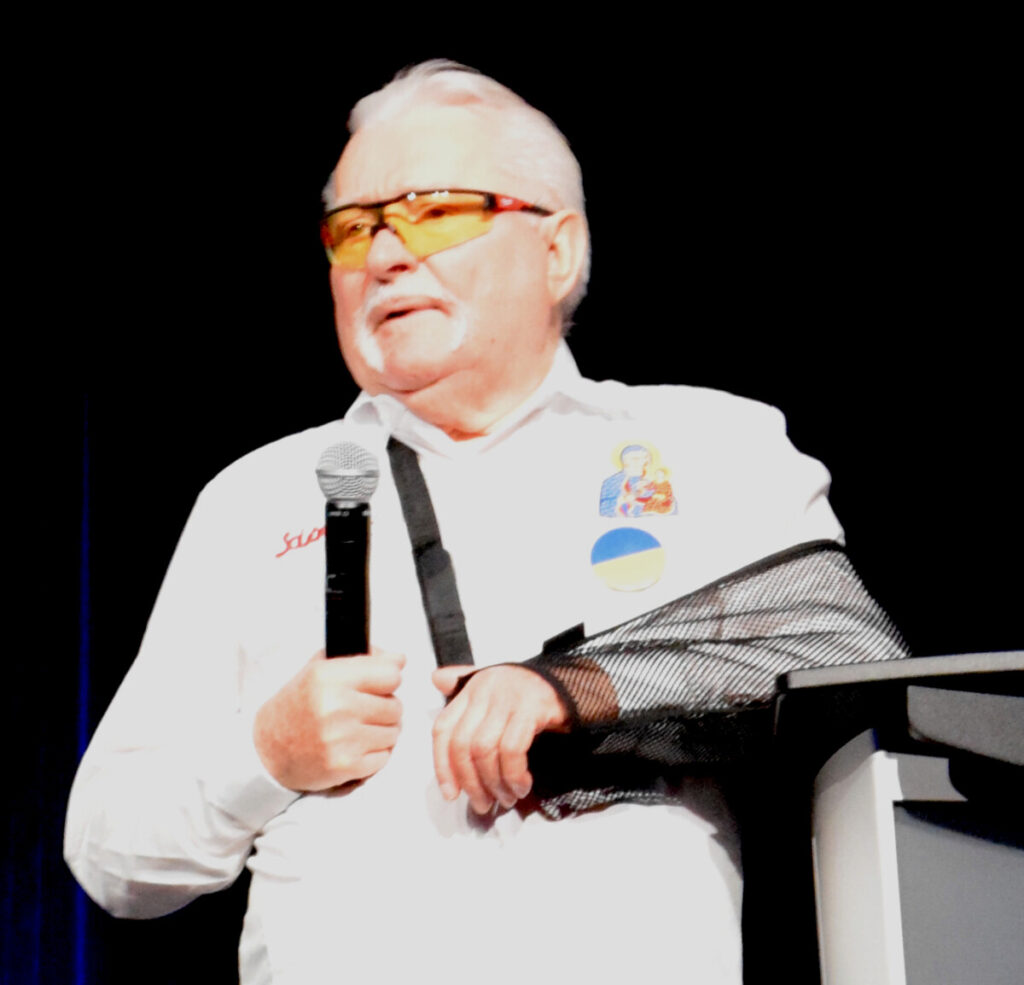
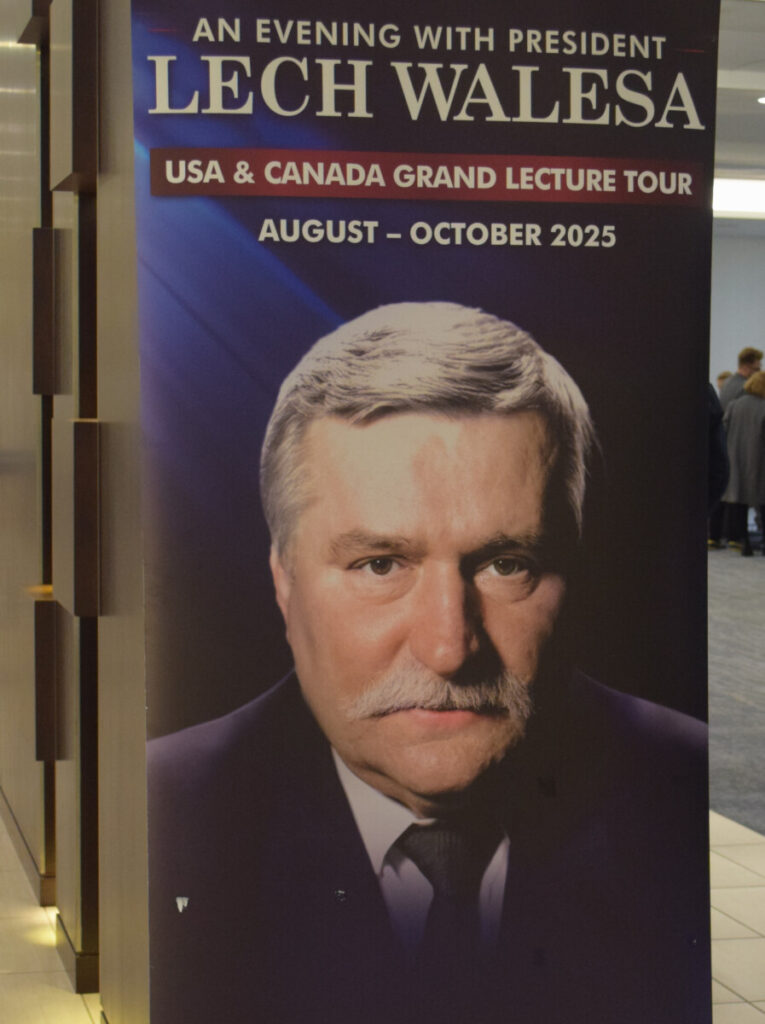
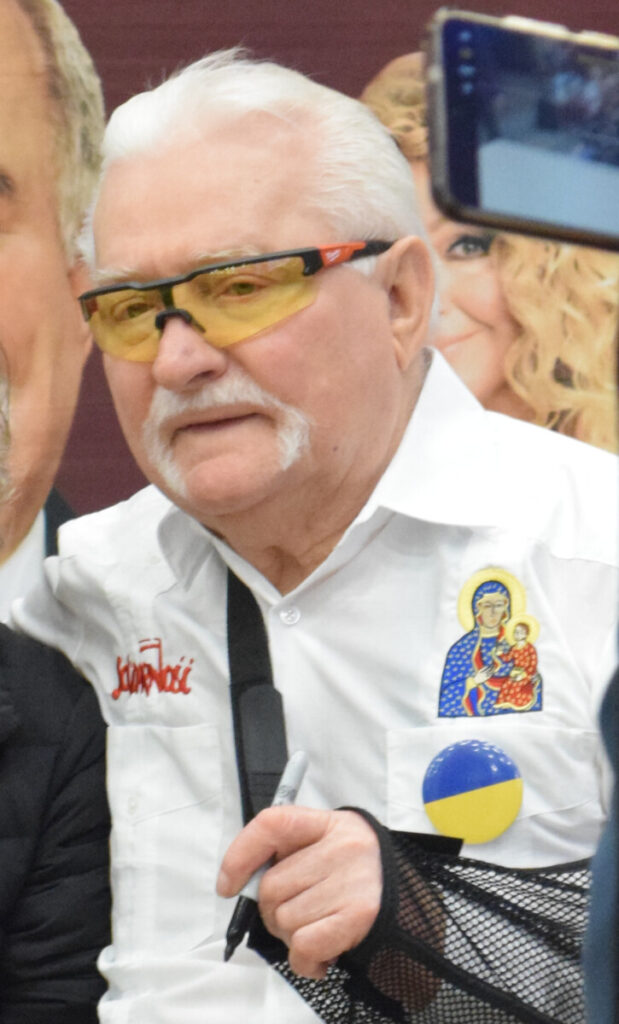
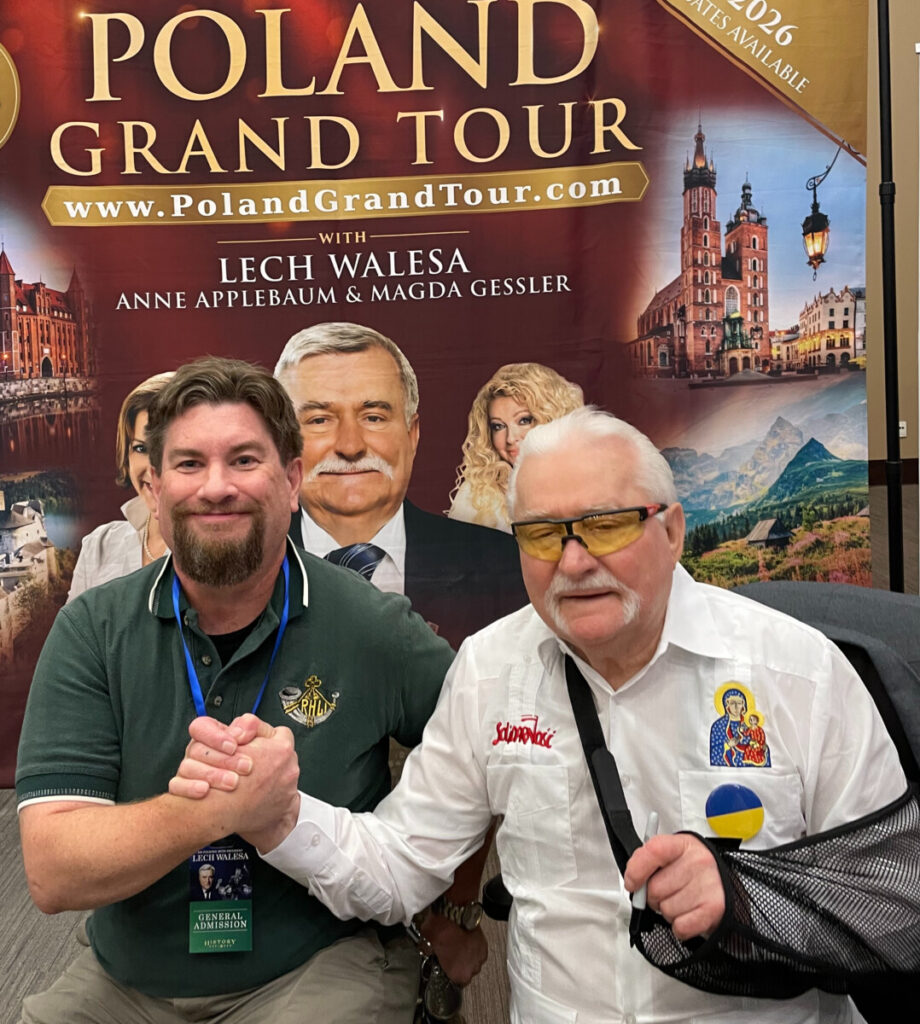
October 2025
To anyone who was aware of the Cold War struggles behind the Iron Curtain, the name Lech Wałęsa is synonymous with the fight for freedom. As the co-founder of the Solidarity trade-union (Solidarność in Polish) in the Lenin Shipyard, in the northern Polish city of Gdańsk, Wałęsa became an international figure in the struggle against Soviet oppression in the 1970s and 1980s.
Wałęsa, born 29 September 1943 in Popowo, Lipno county, then under Nazi occupation, was just a simple electrician working in the shipyard, who went on to become a trade-union activist and leader of the Solidarity movement in Poland. Faced with an economic crisis in the summer of 1980, Wałęsa was one of the leaders in a wave of strikes and factory occupations across the country, culminating in a strike in the Lenin Shipyard in August 1980. A list of 21 demands was issued to the Soviet-controlled Polish government by the Inter-Enterprise Strike Committee, headed by Wałęsa, leading to the seminal Gdańsk Agreement between striking workers and the government on 31 August.
In the aftermath of the strike, Solidarity was formed as an independent trade union, with a membership of around 10 million members nationwide, and becoming a major force in Polish politics.
Edward Gierek, First Secretary of the Polish United Workers’ Party, otherwise known as the Communist government of Poland, permitted Solidarity to emerge per the Gdańsk Agreement. Shortly afterwards, Gierek was fired from his post and arrested. His replacement, General Wojciech Jaruzelski, imposed Martial Law on 13 December 1981 and outlawed Solidarity. While Martial Law ended on 22 July 1983, but the Solidarity movement had gained too much momentum. By 1988, it was impossible to hold back change any more.
In August 1988, when faced with the many social protests which brought the Polish economy to a crisis point, the government finally agreed to a dialogue with the opposition Solidarity Union. The Polish Round Table Talks took place in Warsaw from 6 February to 5 April 1989. The end result was a successful pro-democratic effort which led to the collapse of Communist rule in Poland in 1989 and the eventual end of the Cold War.
None of this struggle came easy for Wałęsa, who was arrested and jailed on numerous occasions between 1976 and the late 1980s.
In 1990, former “Enemy of the State” Wałęsa became the first democratically elected president of Poland since 1926, remining in office until 1995, losing by a narrow margin in the election that year.
Also in 1995, Wałęsa established the Lech Wałęsa Institute, modeled after President Jimmy Carter’s Carter Institute, dedicated to “finding peaceful solutions to international conflicts, advancing democracy and human rights, and promoting economic and social development.” Since 2000, the role of the institute has focused primarily preserving the role of Solidarity movement and Polish political transition, along with Poland’s path to freedom.
Wałęsa has received numerous honours and tributes, including Time Magazine Person of the Year (1981), Time Magazine’s 100 most important people of the 20th century (1999), over forty honorary degrees from prestigious universities such as Harvard and Columbia, the U.S. Presidential Medal of
Freedom, the Knight Grand Cross of the Order of Bath and the French Grand Cross of Legion of Honour.
The Gdansk Wrzeszcz Airport was re-named the Gdańsk Lech Wałęsa Airport in 2004 in his honour.
The Lenin Shipyard, where Solidarity began, was previously re-named Gdańsk Shipyard in 1989.
At the age of 82, Wałęsa is still touring the world, promoting peace and global cooperation.
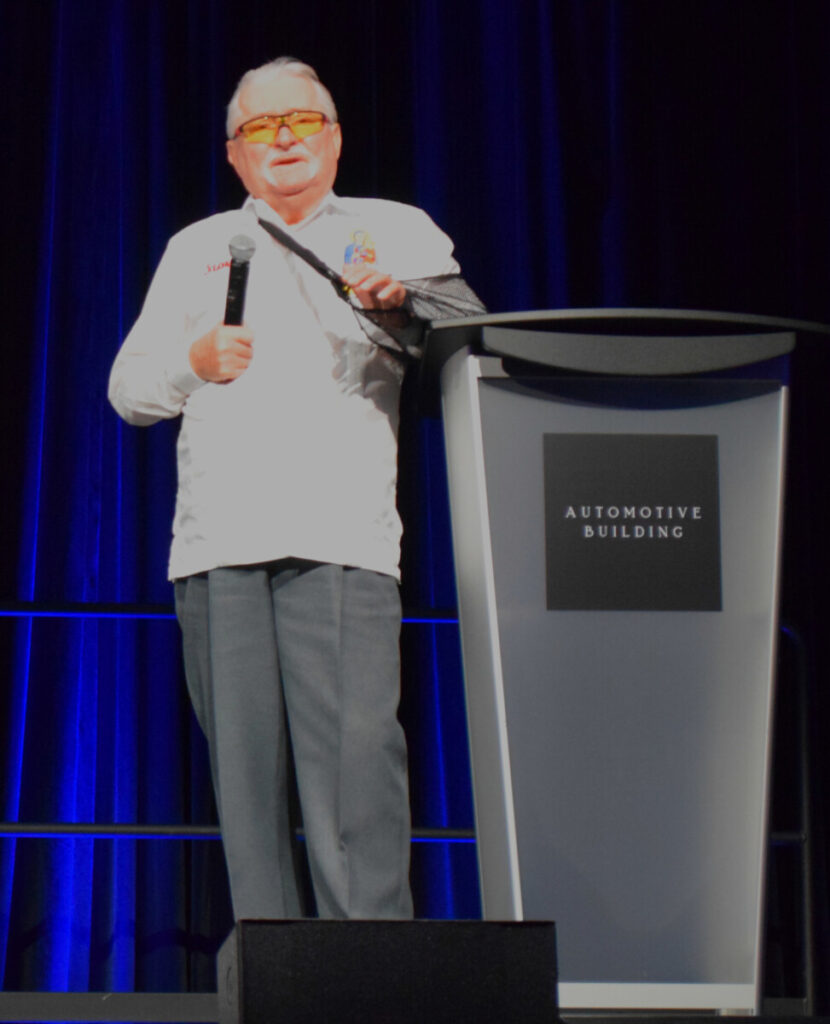

Sources: https://en.wikipedia.org/wiki/Lech_Wa%C5%82%C4%99sa, https://en.wikipedia.org/wiki/Gda%C5%84sk_Shipyard, https://en.wikipedia.org/wiki/Polish_Round_Table_Agreement, https://en.wikipedia.org/wiki/Martial_law_in_Poland, https://en.wikipedia.org/wiki/Polish_United_Workers%27_Party, Lech Wałęsa Institute – Wikipedia.



